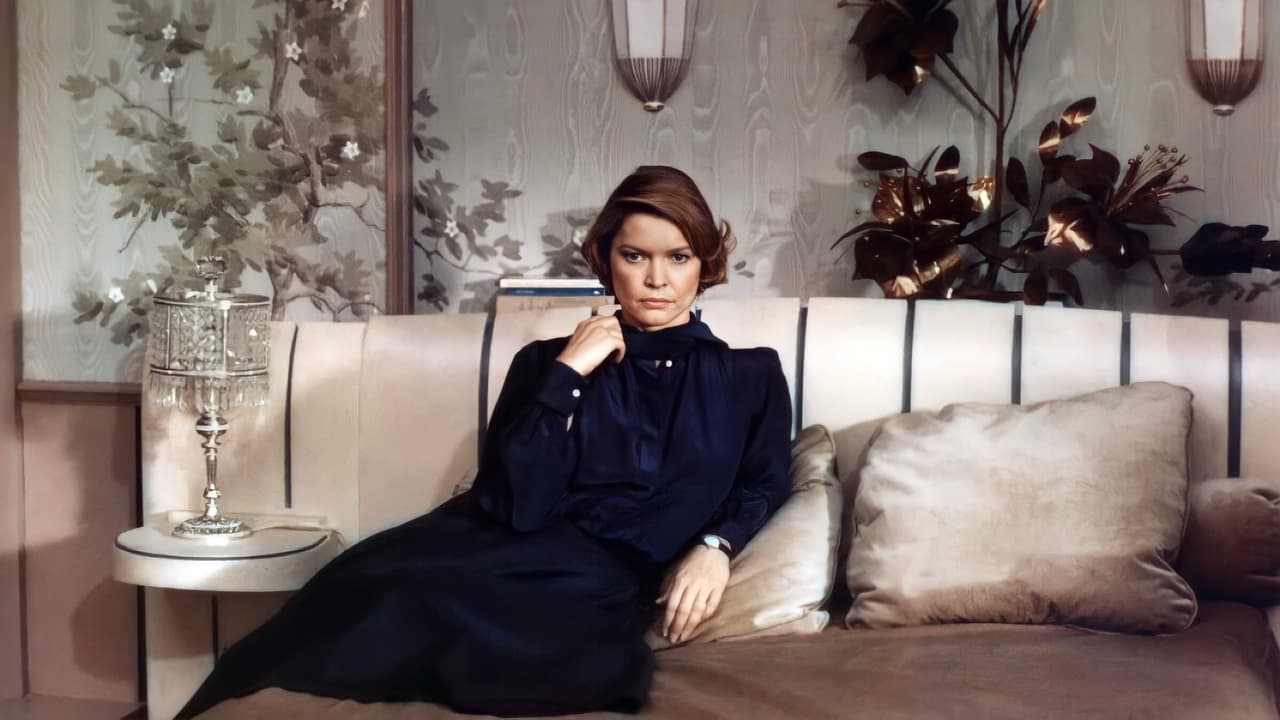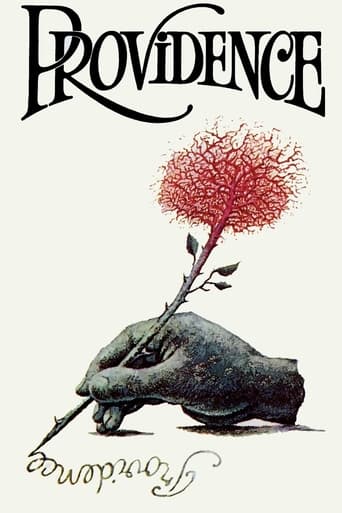

This is in the vein Resnais has consistently delivered since Hiroshima of close to 20 years before - not just on slippery boundaries between reality and fiction, but on the subtle diaphanous membranes from one memory to the next, each one its own piece of story overlapping the rest like the layers of an onion.3/4ths of the film are a bed-ridden (dying) writer's recollections, we are initially unaware of this, but ever-so-slowly the film shifts to helter skelter a brew of whimsical narration, persistent memories, sweat-soaked nightmare, bitter recrimination, a capricious writer's embellishments of truth and literary digress. It is Nouvelle Vague pure and simple, the pastel colors and 'old Hollywood' Miklos Rosza score wonderfully abetting the air of movielike confabulation. Notice too those painted backdrops of the sea and gardens, evocative of Hitchcock and lush Hollywood melodrama.The final part is back in the daylight of reality, in a spacious mansion surrounded by rich greenery where characters we have known as figments of his mind now come to visit (one final visit to send the old man away) as they really are, a marked difference. They are not the melodramatic movie-persons we were introduced to, they are (more commentary here) 'unreally' real and unaffected, almost too much so. Other elements of the old man's imagination fall into place, like the mercy killing which opens the film as his own and written for him or the recurring theme of political activism, civil war and bombs going off which is explained as the old man being at one time a 'bolshevik'. (Resnais' own commentary found elsewhere? he liked the revolution, but not revolutionaries)There is near the end, this languid 360 pan of the camera to irrevocably establish that this is happening in 'reality' and not some studio space.Resnais is markedly not seduced by his own concoction, not like Godard would be. So the film may come across as finally dry, when it is simply the product of a quiet imagination. It is not so hermetic as to be inaccessible, in fact my only quibble would be that it is all too neatly and nicely resolved by the end, it makes easy sense.See this, people. My guess is that young Greenaway and Raul Ruiz both did, then near the start of their careers. Both would elaborate on the idea of a capricious narrator who puzzles about a story he alters by telling and synchronous realities in turns overlapping and generating the others. Both would enlist Sacha Vierny at some point.
... View MoreI saw this film at release and have seen it several times since and this motion picture still holds up, a seemingly complex story that unravels steadilythroughout the film. Resnais uses every dramatic device available to tell what becomes a moving and tender portrait, not least visual puns, particularly asequence where Dirk Bogarde drives across "town", in which a very simplemontage predates digital morphing as seen in current commercials, smoothly linked through the activity of the character. All good Resnais films include an examination of the minds of his characters and this is a superb twist-and-turn reality that involves us completely. The acting of course is flawless and includes a wonderful pairing of the great Elaine Stritch and Ellen Burstyn. David Warner, a personal favorite, is actually given the opportunity to act and steps up to the plate and compliments Dirk Bogarde's cool and wooden portrait. I regularly look for this release on DVD and am consistently disappointed. Could someonepublish it soon?
... View MoreA dying artist, beautifully acted by Fainsilber, struggles to complete one last book before he dies - the plot of which becomes confused with his own troubled life as he thinks and dreams his way through the night. This was the first film in English for master film-maker Alain Resnais, and also happens to be one of his best. Using a variety of surreal cinematic techniques, Resnais is able to capture the characters of everyone in the film perfectly and his style - combined with excellent scripting - makes for an experience that will not be forgotten. Although the first half of the film will probably be spent in confusion, before you actually realise what is going on - I had to see this film several times before I was satisfied - it is worth struggling to understand this complex and thoroughly entertaining artistic movie.
... View MoreA double header of complex imagination (first part) and painful recrimination (second part) in this film of deep feeling and hurt seen through the eyes of the dying author (John Gielgud). David Mercer's script includes all his life long angst of the relationship of father and son, although now in his final years fought out with more complex and participating female characters in the ghost of his dead wife, who doubles as his son's mistress (Elaine Stritch) and daughter-in-law (Ellen Burstyn).The acting is pure poetry with John Geilgud at his refined best as the drunken and dying author in part celebrating his life of drunken womanising and in part regretting the pain that he has caused, in particular to his family. Dirk Borgarde performing the impossible task of being two imaginary characters and one real one with seemless effort. As the son of the dying author he carries all the pain and hatreds of the dying father both in the old man's fantasy and in his real life of inherited disillusionment. His relationship with his wife and mistress (in practice his mother! complex eh!) changes from the deeply loving to the perceive accusatory of the old man's increasingly drunken imagination.Ellen Burstyn gives one of her finest film performances as the long suffering wife ,but in the end all the plaudits go to the writer. The style may be only that of the one-liner but each of them hits as an aphorism from the greatest of philosophical minds. The revolving characters of the final part of the authors dreaming make a bewildering tapestry of the imagination.A fabulous movie, but one that will take many viewings to actually comprehend the complexities of it. Set that video!!
... View More